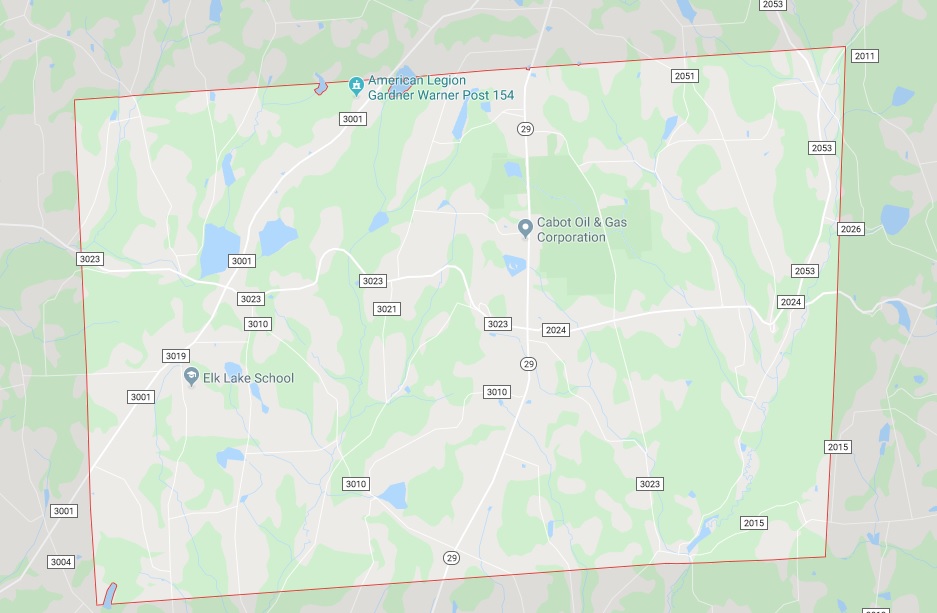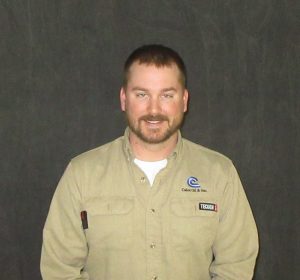By Rick Hiduk
Friday, Nov. 15 is National Recycling Day. The concept of recycling goes back to ancient times, yet many people aren’t aware of everything that can be recycled. Cabot Oil & Gas Corporation is one of few companies in the nation to recycle almost all of its production water to reduce both waste and the need for fresh water for its operations in Susquehanna County.
At its facilities in Dimock and Lenox townships, water recycling operations that were once considered experimental are now routine. Cabot partners with ComTech and FRS (Fluid Recovering Services) to employ about a two dozen people and more than 100 drivers of water tankers. Ethan Greenley oversees all water treatment processes for Cabot, where the joint operations are responsible for processing nearly 100 percent of the production water.
“ComTech and FRS are industry leaders, and they do a great job. The way that we treat our water has become a key part of our completions operations,” said Greenley, citing Cabot as an industry leader in the recovery of recycled water.
Many companies get the water back and send it to a disposal well or to another company to use, Greenley explained. “We bring water back up that we used for the frack, treat it to our spec and reuse it. We keep everything in house, which allows us to be a lot more efficient and overall, we believe, producing a better product,” Greenley stated. “I don’t believe that there is any other company around that goes to the lengths and as in depth as we do.”
Greenley grew up on a family farm in Wyoming County, where, like Susquehanna County, family-sustaining jobs were few and far between. “If you weren’t a farmer, a logger, or having something to do with stone, your options were limited,” he related, one exception being the Procter & Gamble plant at Mehoopany.
As was typical in small towns during that era, many of Greenley’s classmates left the region to pursue their educations. Some returned, but most never looked back. But the influx of gas companies and their industry partners breathed new life into area agriculture and provided a host of alternative employment opportunities. Men and women like Greenley found entry-level positions with gas-related companies that offered incentives and rewards to dedicated workers whose ambitions paralleled the industry’s needs.
“I never anticipated coming into the gas industry,” said Greenley, who gained valuable experience during his seven years on the service side of natural gas in logistics, trucking and water management. Field experience, he suggested, is the most important element for anybody looking for advancement in the industry. “You learn a lot when you get your hands dirty.”
Greenley’s ascension through the ranks of one of the more technical branches of the industry is not unusual, he maintains. The gas industry provides opportunities for advancement of workers in rural communities that many other industries cannot. “They’ve helped the surrounding communities by hiring locally,” said of Cabot and the many supporting businesses.
In every community, there are people who continue to distrust the natural gas industry when it comes to protecting the environment, Greenley conceded. “Everybody’s human. We’re a business. P&G (Procter & Gamble) is a business. Accidents happen,” he stated as a matter of fact. “We go to extraordinary lengths to make sure that they don’t. We have policies and procedures that we review daily so that, when these things do happen, we have an environmental response that is second to none.”
In his three years working with ComTech, there has been one significant spill that was a combination of equipment error and human error. Due to the layers of containment and the procedures in place, Greenley noted, “We were able to control it, minimize the impact of it, and literally take care of it within minutes.”
The company’s environmental responsibility and stewardship means a lot to the employees too, he related. “When you hire local people, we care about the environment two-fold. We live here and work here,” said Greenley. “We’re protecting ‘home’ when we can prevent something bad from happening. We’re working in our backyards. We take that extra step because we care.”
Onsite safety of the workers is also a major concern. Management goes to great lengths to impart upon employees that there is no rush. “We want to produce a good product and get the job done in the right way,” Greenley remarked. “We want everybody to go home with all of their toes and all of their fingers.” Cabot conducts quarterly meetings with contractors and monthly safety meetings with employees, as well as tailgate meetings on safety topics in the field.
Meanwhile, back on the farm, Greenley is proud to be part of an industry that breathed fresh air into a sagging agricultural scene. Between royalties for gas extraction and money paid for land use, he explained, “The gas industry has given them a second chance. It has truly been a blessing and has given them another opportunity to do something they have a passion for.” The ground is giving back to the landowners and allowing them to continue to farm, often in a way that is much more enjoyable to them. “That’s a big deal around here. I can’t say that enough.”
As a longtime hunter, Greenley has also seen first hand that proper land management by established operators results in an ecological assist, rather than the other way around. Though there are no gas pads on his farm, Williams Companies installed a pipeline through a wooded section of the property that was then reseeded, providing ample grazing grounds for deer and thereby increasing the herd size and hunting opportunities. “After the pipeline came through my farm, we’ve seen more deer and turkeys,” said Greenley.

